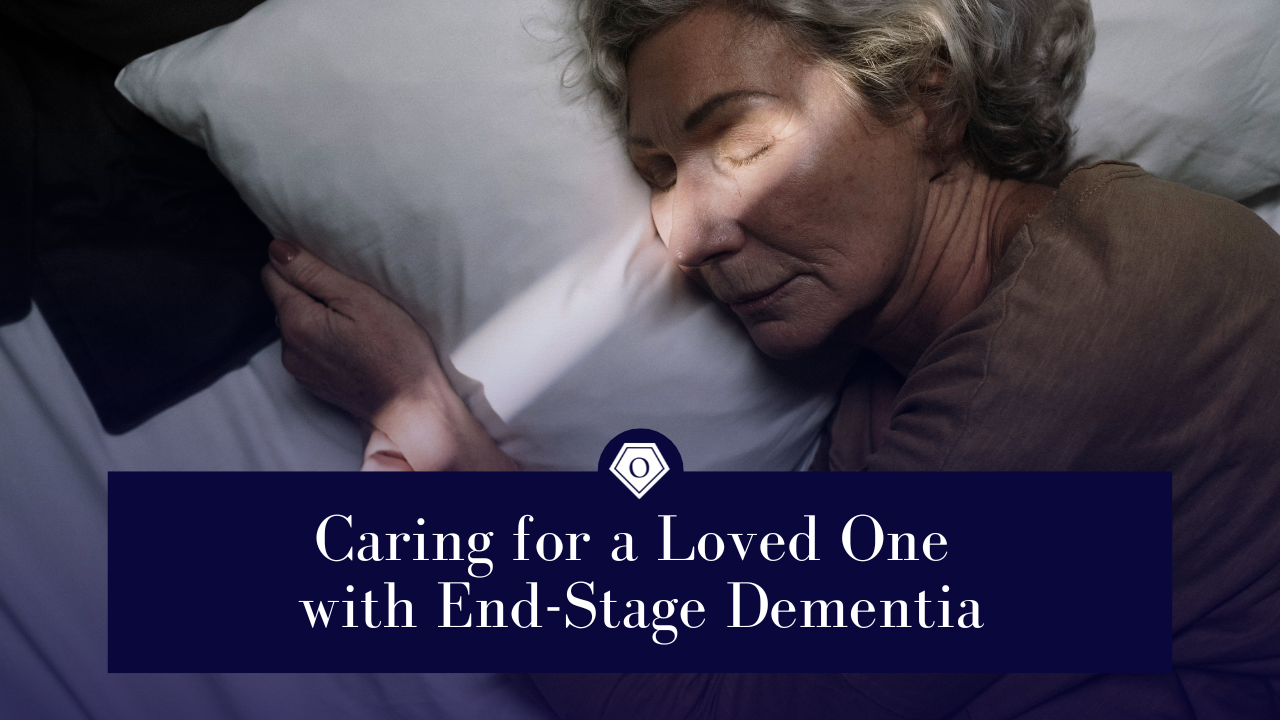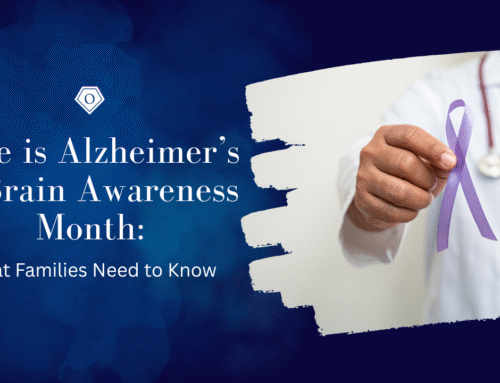Caring for a loved one in the final stage of dementia is a deeply emotional journey. It’s a time when you may feel an overwhelming mix of love, sorrow, exhaustion, and even relief as you strive to provide comfort and dignity to someone who means so much to you. At this stage, your loved one is likely bedbound and entirely dependent on you or other caregivers for their care. The reality of their condition may bring grief, as you navigate the loss of who they once were while cherishing the moments you still have together. As their needs grow, you’ll likely find yourself working closely with both home care services and hospice providers, blending the non-medical support of home care with the specialized medical and emotional care of hospice. This combination ensures your loved one’s physical, emotional, and spiritual well-being while also giving you the respite and guidance you need to manage this profound responsibility. Understanding what to expect and how to access the right resources can ease this journey for both of you.
Here are some important things to consider to ensure their comfort and preserve your own well-being during this time:
Specialized Bedbound Care
When someone is bedbound, they are at higher risk for complications like pressure sores, infections, and muscle stiffness. Proper care can prevent discomfort and improve their quality of life:
Prevent Pressure Sores
- Reposition Frequently: Shift their position every 1-2 hours to relieve pressure on sensitive areas like the tailbone, hips, and heels.
- Use Supportive Cushions: Invest in pressure-relieving mattresses or cushions to reduce strain on their skin.
- Inspect Skin Daily: Check for signs of redness, blisters, or open wounds and address them promptly.
Maintain Skin Integrity
- Keep Skin Clean and Dry: Use gentle cleansers and pat dry thoroughly after cleaning.
- Apply Barrier Creams: These can prevent irritation from moisture due to incontinence or sweating.
- Moisturize Regularly: Hydrate their skin to reduce dryness and cracking.
Ensure Proper Hygiene
- Bed Baths: Regular sponge baths can help maintain cleanliness. Use warm water, gentle soap, and soft towels.
- Oral Care: Keep their mouth clean with a soft toothbrush or foam swabs to prevent infections.
- Hair and Nail Care: Grooming small details like hair and nails can improve their comfort and dignity.
Adjust Their Position for Comfort
- Elevate the Head: If they’re comfortable, elevating the head slightly can improve breathing and reduce the risk of aspiration while eating or drinking.
- Support Their Joints: Use soft pillows to support their back, arms, and legs to prevent stiffness and discomfort.
Manage Incontinence
- Use Absorbent Products: High-quality adult briefs and underpads can help keep them dry and protect the bedding.
- Regular Changes: Change products as soon as they’re soiled to prevent skin irritation or infection.
Encourage Gentle Movement
- Passive Range of Motion: If a healthcare provider approves, gently move their arms and legs to prevent stiffness and improve circulation.
- Stretching: Simple, light stretches can reduce muscle contractures and keep them more comfortable.
Keep Their Environment Comfortable
- Room Temperature: Ensure the room is warm enough, as bedbound individuals are more prone to feeling cold.
- Lighting and Noise: Keep the environment calm, with soft lighting and minimal noise to promote relaxation.
- Personal Items: Surround them with familiar objects like family photos, favorite blankets, or music to provide emotional comfort.
Understanding the End Stage of Dementia
End-stage dementia is a deeply challenging phase, both for the individual and their caregivers. During this time, physical, cognitive, and emotional changes become more pronounced, and caregiving shifts to focus on comfort, dignity, and emotional connection. Here’s what to expect and how to navigate this stage with care and compassion:
Physical Changes
- Decreased Mobility: Many individuals lose the ability to move independently, becoming bedbound. Muscle weakness and stiffness are common.
- Loss of Appetite: Eating and drinking may decrease significantly as their body naturally begins to slow down. This is a normal part of the process.
- Changes in Breathing: Breathing may become irregular, with long pauses or shallow breaths.
- Increased Sleep: Your loved one may sleep for most of the day as their body conserves energy.
Cognitive and Emotional Changes
- Limited Communication: Verbal skills may be minimal or entirely lost. However, they may still recognize familiar voices, touch, or even the scent of a loved one.
- Increased Confusion: They may appear disoriented or less aware of their surroundings.
- Emotional Responses: They may still respond to comforting words, music, or touch, even if other cognitive abilities have declined.
Comfort at the End of Life
At this stage, the goal of care is to ensure their comfort and quality of life.
- Pain and Symptom Management
- Collaborate with healthcare professionals to manage pain, anxiety, and other symptoms. Medications like low-dose opioids may be prescribed for comfort.
- Emotional Support
- Create a calming atmosphere with familiar sights, sounds, and smells. Play their favorite music or hold their hand to provide reassurance.
- Spiritual and Cultural Needs
- If spirituality or cultural traditions are important to your loved one, integrate these practices into their care. A spiritual advisor or counselor may provide additional support.
Recognizing the Signs of Transition
As your loved one approaches the end of life, you may notice signs such as:
- Increased sleep and reduced wakefulness.
- Withdrawal from surroundings and minimal interaction.
- Coolness in extremities, often a sign of reduced circulation.
- Changes in breathing, such as the “Cheyne-Stokes” pattern (deep breaths followed by pauses).
These changes can be distressing, but they are a natural part of the process. Hospice care teams are experienced in providing guidance and support during this time.
Caregiver Support
This stage can take an emotional and physical toll. Make sure to:
- Seek Help: Engage family, friends, or professional caregivers to share the responsibilities.
- Allow Yourself to Grieve: Grieving often begins long before your loved one passes. A counselor or support group can help you process your emotions.
- Celebrate Their Life: Reflect on joyful memories and share stories with others. This can be a healing way to honor their legacy.
Caring for a loved one in the end stage of dementia is a profound act of love. Remember, you don’t have to face it alone. Our team at Onyx Home Care specializes in dementia and Alzheimer’sAlzhimer’s care, providing support to both you and your loved one during this tender time, even as you work with hospice.
Dementia & Alzheimer’s Care
Onyx Home Care’s neurological disorder care is built around a system of support. This service includes skilled home care as well as a unique program that centers on the patient’s interests and stage of illness. Our goal is to see happy family members, patients and caregivers. Often times, caregivers feel remote. Our team includes each person in the home care process to provide inclusive care that helps the patient thrive.






